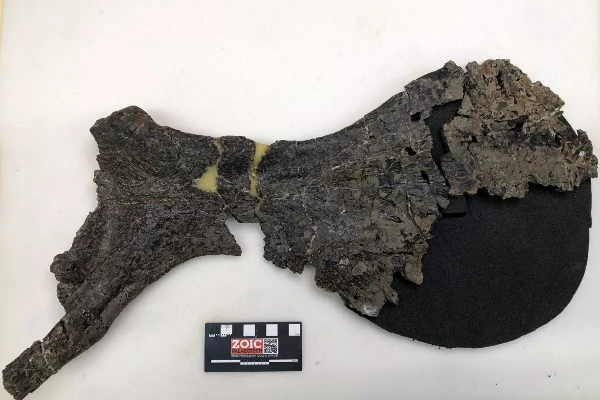125-million-year-old dinosaur fossil discovered in the UK is the most complete in a century

Recently, a study published in the Journal of Systematic Palaeontology revealed that a herbivorous dinosaur fossil, excavated years ago on the Isle of Wight in the UK, dates back approximately 125 million years. The fossil is exceptionally well-preserved and is considered the most complete dinosaur fossil found in the UK in the past century.
According to Jeremy Lockwood, a PhD student at the University of Portsmouth who was involved in the excavation, the dinosaur fossil weighs about 900 kilograms, similar to an adult male American bison. He also speculated that this herbivorous dinosaur might have been a social animal. Lockwood's research details every part of the fossil, including the skull, teeth, vertebrae, and leg bones, even a hip bone as large as a dinner plate.
The fossil was discovered by the late collector Nick Chase in 2013 on the cliffs of Compton Bay on the Isle of Wight and consists of 149 bones. In honor of Nick Chase, the dinosaur fossil has been named Comptonatus chasei. Lockwood praised Chase's extraordinary ability to find dinosaur fossils and stated that this discovery is significant for understanding the diversity of dinosaurs in England during the Early Cretaceous period.
The findings from the Isle of Wight indicate that the area once had a diverse ecosystem. Over the past five years, eight new extinct species have been named from the region. Notably, in 2022, another Cretaceous-period carnivorous dinosaur fossil, the largest such remains found in Europe to date, was also unearthed on the Isle of Wight. These discoveries suggest that the Isle of Wight and its surrounding areas may have once been among the world's richest ecosystems, enhancing our understanding of Cretaceous dinosaurs and providing valuable data for paleontology and ecosystem studies.
- 252 reads
Human Rights
Fostering a More Humane World: The 28th Eurasian Economic Summi

Conscience, Hope, and Action: Keys to Global Peace and Sustainability

Ringing FOWPAL’s Peace Bell for the World:Nobel Peace Prize Laureates’ Visions and Actions

Protecting the World’s Cultural Diversity for a Sustainable Future

Puppet Show I International Friendship Day 2020

